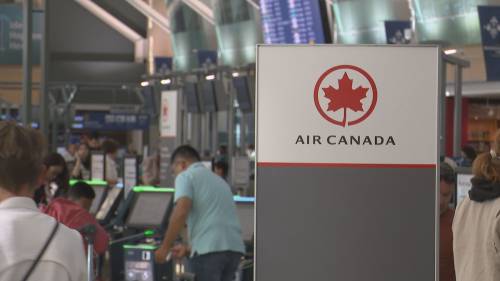As labor tensions escalate at Canada’s largest airline, thousands of travelers face mounting uncertainty about their summer travel plans. Air Canada’s 9,000 flight attendants have voted overwhelmingly in favor of strike action, authorizing their union to call a strike as early as June 26 if ongoing negotiations fail to produce a satisfactory agreement.
The Canadian Union of Public Employees (CUPE), representing Air Canada’s cabin crew, reports that 99.3% of voting members supported the strike mandate, sending a powerful message to airline management about their resolve. This development comes at a particularly challenging time as the peak summer travel season approaches, potentially affecting hundreds of thousands of passengers across the airline’s extensive domestic and international network.
“This strike authorization isn’t something our members take lightly,” said a CUPE representative in a statement released yesterday. “But after months of stalled negotiations and growing concerns about work conditions, flight attendants feel they have no choice but to take this step to achieve a fair contract.”
For passengers holding Air Canada tickets for travel on or after June 26, the situation creates considerable anxiety. Travel experts are advising ticketholders to closely monitor communications from the airline, which has pledged to provide timely updates on service disruptions should a strike materialize. The airline has stated it remains “committed to reaching a fair agreement” and continues to engage in federally mediated negotiations.
Consumer advocates recommend travelers consider purchasing comprehensive travel insurance that specifically covers labor disruptions, though they caution that policies purchased after a strike becomes public knowledge typically won’t cover related cancellations. Many CO24 Business analysts note that this represents yet another challenge for Canada’s travel sector, which has faced significant recovery hurdles since the pandemic.
Airline industry experts interviewed by CO24 Canada News suggest several contingency options for concerned travelers. “If you have imminent travel plans with Air Canada, consider exploring alternative routing options now, even if you don’t book them immediately,” advised one travel analyst. “Having a backup plan can provide peace of mind while the situation unfolds.”
Air Canada has indicated it would implement a flexible rebooking policy should a strike occur, potentially allowing passengers to reschedule without penalty or receive refunds for canceled flights. However, the airline has not yet detailed specific compensation policies, leaving passengers with questions about potential financial impacts.
The federal government is monitoring the situation closely, with the Minister of Labour suggesting potential intervention if negotiations break down completely. Under Canadian law, the government retains the authority to refer disputes to binding arbitration or legislate striking workers back to work if the dispute is deemed to significantly impact the public interest or national economy.
For the broader CO24 World News travel market, this potential disruption comes as global air travel approaches pre-pandemic levels, with airlines already stretched thin by staffing challenges and equipment shortages. An Air Canada strike could have ripple effects across airline alliances and code-share partners, potentially impacting travelers who might not even be flying directly with the carrier.
As this situation continues to develop, the fundamental question remains: will passengers prioritize certainty over loyalty in their travel planning? With competing carriers already reporting increased booking inquiries, Air Canada faces not just immediate operational challenges but potential longer-term damage to customer confidence in an industry where reliability is paramount.
















